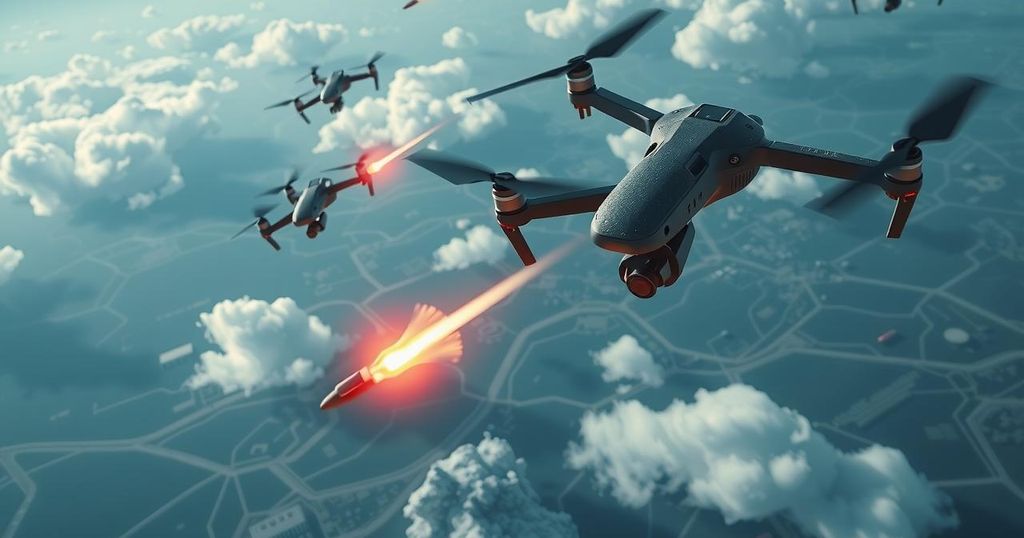Operation Sindoor: How India’s Defense System Outperformed Turkish Drones
In Operation Sindoor, Turkey’s drones faced significant challenges against India’s own defense systems, particularly the cheaper and domestically produced models that effectively neutralized them. Meanwhile, India’s use of Israeli Harop drones proved highly effective during the conflict, targeting key military infrastructure. These developments could impact Turkey’s ambitions as a defense power under President Erdogan.
In a recent military engagement known as Operation Sindoor, India’s own defense systems demonstrated impressive capabilities, effectively grounding many Turkish drones that were previously celebrated in Ukraine. The conflict appears to expose critical vulnerabilities in these Turkish aircraft, which have not been upgraded to match the more advanced models deployed in Europe. The incident marks a notable setback for Turkey, especially under President Recep Tayyip Erdogan, who has aggressively promoted drone technology as a hallmark of national strength and sovereignty.
Reports indicate that cheaper and domestically produced Indian drones took advantage of the Turkish units’ flaws, establishing their dominance during the operations. This outcome runs counter to Erdogan’s ambitions of solidifying Turkey’s position as a formidable power within the Muslim world. The stark contrast in drone efficacy has led to discontent within Ankara, as evidenced by the low-level representation at a recent Indian Ministry of Defence briefing on the operation, a diplomatic snub that suggests deeper frustrations.
On the other hand, India’s military relied heavily on Israeli-made Harop drones, also referred to as loitering munitions. These drones can identify and engage targets effectively by crashing into them with explosives. Reports reveal that they played a crucial role in dismantling several of Pakistan’s air defense systems and other military infrastructures during the skirmishes between May 7 and May 10. The success of these loitering munitions underscores the importance of strategic partnerships in defense technology, allowing India to fortify its military prowess significantly.
With both countries showing varied results in their respective drone strategies, the implications of Operation Sindoor extend beyond immediate military outcomes. The failures of Turkish drones against Indian defenses may impact future international perceptions of Turkey’s technological advancements in drone warfare. As Erdogan’s government looks to elevate its standing as a leader in defense systems, these setbacks could undermine its narrative of an indomitable national military capacity.
As tensions in the region led to this showcase of aerial warfare, the effectiveness of Indian defense systems—particularly the integration of foreign technologies—has come into sharp focus. The continued reliance on innovative weaponry, like the Harop, highlights not only India’s strategic capabilities but also serves as a warning sign for nations competing in the global arms race.
Operation Sindoor has revealed significant shortcomings in the capabilities of Turkish drones, especially when matched against India’s domestic defense systems. The Turkish drones were successfully neutralized by lower-cost Indian models, marking a potential turning point in regional military dynamics. Meanwhile, India’s use of Israeli-made loitering munitions demonstrated effective results against opposing military infrastructure, emphasizing the vitality of strategic defense partnerships. Overall, these developments could pose challenges for Turkey’s ambitions in the global defense arena.
Original Source: m.economictimes.com




Post Comment